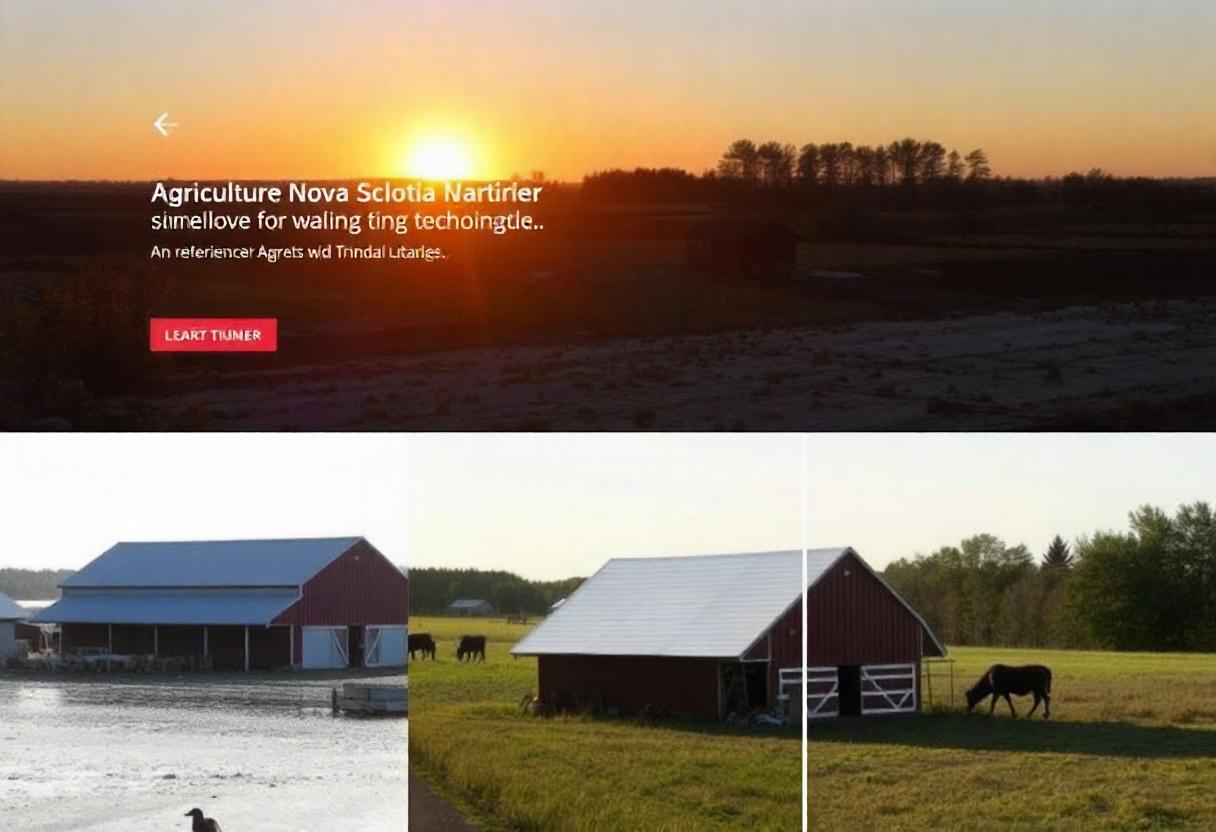
Overview of Agriculture in Nova Scotia
Agriculture is a significant industry in Nova Scotia, contributing to the province’s economy and supporting rural communities. The region’s diverse climate and geography allow for the cultivation of various crops and the raising of livestock. Nova Scotia is known for its production of dairy, poultry, fruits, and vegetables, with many farms also engaging in organic and sustainable farming practices.
Major Agricultural Products
Nova Scotia’s agricultural sector is known for producing a wide range of products. The province is particularly famous for its apple orchards, blueberry fields, and vineyards. Dairy farming is another major component of the industry, along with poultry and egg production. Nova Scotia also grows a variety of vegetables such as carrots, potatoes, and cabbage. In recent years, there has been an increase in niche markets like organic farming and specialty crops, further diversifying the agricultural landscape.
Challenges Facing Nova Scotia Agriculture
Like many agricultural regions, Nova Scotia faces a number of challenges. Climate change is impacting growing seasons, water availability, and the occurrence of extreme weather events, which can affect crop yields and livestock production. Additionally, the aging farming population and the rising cost of land and equipment are significant concerns for the future of farming in the province. Access to markets and maintaining competitiveness with imported goods are also ongoing challenges.
Support and Resources for Farmers
Nova Scotia offers several programs and resources to support its farming community. The provincial government, through the Department of Agriculture, provides funding programs, research initiatives, and extension services aimed at improving farm productivity and sustainability. The Nova Scotia Federation of Agriculture is another key organization, representing farmers’ interests and advocating for policies that support the industry. Educational institutions such as Dalhousie University also play a role in agricultural research and training, helping farmers adopt new technologies and best practices.
Sustainable Farming Initiatives
Sustainability is a growing focus within Nova Scotia’s agriculture sector. Many farmers are embracing environmentally-friendly practices, such as crop rotation, no-till farming, and integrated pest management, to preserve soil health and reduce environmental impact. The province has also seen an increase in organic farming and local food movements, with consumers showing greater interest in purchasing sustainably-produced food. Nova Scotia is working to balance agricultural productivity with environmental stewardship, ensuring a vibrant farming sector for future generations.
The Future of Agriculture in Nova Scotia
The future of agriculture in Nova Scotia looks promising, with a focus on innovation, sustainability, and diversification. There is increasing interest in value-added products, agritourism, and alternative farming methods such as aquaculture and greenhouse production. By continuing to adapt to new challenges and opportunities, Nova Scotia’s agriculture sector is well-positioned to remain a vital part of the province’s economy and culture.